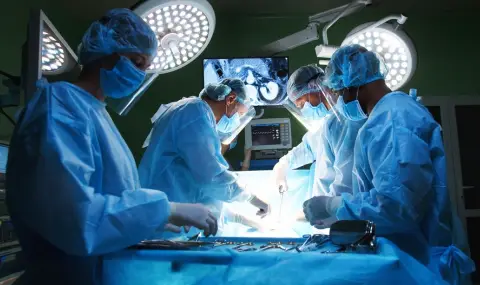In Africa, the trade in human organs "has reached epidemic proportions, but the public is silent about the problem,", Nigerian human rights lawyer Frank Tieti told DV.
The Washington-based think tank Global Financial Integrity (GFI) believes corruption, illicit trade and money laundering are behind it. The GFI has estimated that between $840 million and $1.7 billion is earned annually from human trafficking for organ harvesting.
Organ donation and transplantation are established medical procedures that are vital for patients with damaged organs. They can be very successful if conducted with informed consent and in full transparency. The problem is that in Africa, the reason for organ transplants is often "poverty, not the noble thought of saving a life or helping a sick person," Tithier also told DV. "Either people are selling their organs, or there are medical staff, especially unscrupulous doctors, who misuse patients' organs without them even suspecting it," he adds.
"We don't buy kidneys"
The sale of human organs is illegal throughout Africa. In 2022, however, the Kenyatta National Hospital in Nairobi was forced to declare on Facebook that it was not buying kidneys. The reason for the action – the most frequently asked question to the hospital was: how much money will I get if I agree to donate a kidney?
However, not all "irregular" transplants are coercive, says Willis Okumu, a senior researcher at the Institute for Security Studies. In Eldoret, a city in western Kenya, he came across people willing to sell their organs. Young men were ready, for example, to sacrifice one of their kidneys for "quick money".
"They were not forced in any way," says Okumu. They were simply being offered up to $6,000 for a kidney, he adds. For comparison: on the black market for human organs, a kidney for transplantation often fetches more than 150,000 euros, according to a European Parliament (EP) document.
Okumu says he has seen many young people with scars on their stomachs – a sign that they have undergone the procedure. They usually buy a motorcycle with the money or invest it in a house. These donors then recruit other young men to donate their kidneys as well, and so the black market grows.
Organ trade boom
Experts believe that the most affected by the problem of illegal trade in human organs in Africa are Egypt, Libya, South Africa, Kenya and Nigeria.
The reasons for this are complex, and regulations on transplantation and organ donation differ from region to region. The United Nations Office on Drugs and Crime (UNODC) uses the term transplant tourism – when vulnerable populations sell transplant organs intended for wealthier recipients.
But wealthier patients also sometimes procure organs illegally, as there is a shortage of organs for transplant. According to the Global Observatory on Organ Donation and Transplantation, less than ten percent of medically necessary transplants are performed worldwide.
In Africa, however, medical centers that carry out legal transplants are extremely insufficient. For example, a 2020 World Health Organization (WHO) report states that there are only 35 kidney transplant centers on the entire African continent.
Complex operation
Participants in the illegal and very lucrative trade in human organs appear to be well organized. To deal with the complex operations of transplanting organs, criminal groups need trained medical personnel, and possibly politicians to stretch an umbrella over them.
Young men interviewed by Okumu at the Institute for Security Studies told him they encountered doctors who did not speak Swahili. Many of them are from India, they shared.
A London court last year convicted Nigerian Senator Ike Ekweremadu, his wife and a doctor of trying to obtain the kidney of a young Lagos man. They are charged with conspiracy to harvest human organs.
Nigerian human rights lawyer Frank Tieti recalls that so-called baby factories exist in Nigeria: these are criminal syndicates that kidnap girls and young women, impregnate them against their will, and sell the babies on the black market.
p>
It is clear to the lawyer that local medical centers are also responsible for exploiting vulnerable people: "When medical staff, especially doctors in elite hospitals in Abuja and Lagos, assure their rich patients that there is nothing to are worried, in fact they tell them that there will certainly be poor people willing to sell the organ they need,'' Tieti says.
Authors: Josie Mahachi | Kai Nebe
